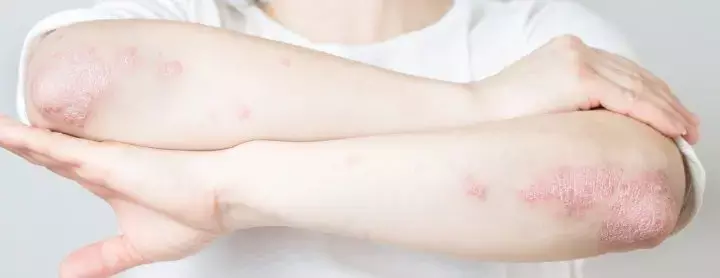- Home
- Medical news & Guidelines
- Anesthesiology
- Cardiology and CTVS
- Critical Care
- Dentistry
- Dermatology
- Diabetes and Endocrinology
- ENT
- Gastroenterology
- Medicine
- Nephrology
- Neurology
- Obstretics-Gynaecology
- Oncology
- Ophthalmology
- Orthopaedics
- Pediatrics-Neonatology
- Psychiatry
- Pulmonology
- Radiology
- Surgery
- Urology
- Laboratory Medicine
- Diet
- Nursing
- Paramedical
- Physiotherapy
- Health news
- Fact Check
- Bone Health Fact Check
- Brain Health Fact Check
- Cancer Related Fact Check
- Child Care Fact Check
- Dental and oral health fact check
- Diabetes and metabolic health fact check
- Diet and Nutrition Fact Check
- Eye and ENT Care Fact Check
- Fitness fact check
- Gut health fact check
- Heart health fact check
- Kidney health fact check
- Medical education fact check
- Men's health fact check
- Respiratory fact check
- Skin and hair care fact check
- Vaccine and Immunization fact check
- Women's health fact check
- AYUSH
- State News
- Andaman and Nicobar Islands
- Andhra Pradesh
- Arunachal Pradesh
- Assam
- Bihar
- Chandigarh
- Chattisgarh
- Dadra and Nagar Haveli
- Daman and Diu
- Delhi
- Goa
- Gujarat
- Haryana
- Himachal Pradesh
- Jammu & Kashmir
- Jharkhand
- Karnataka
- Kerala
- Ladakh
- Lakshadweep
- Madhya Pradesh
- Maharashtra
- Manipur
- Meghalaya
- Mizoram
- Nagaland
- Odisha
- Puducherry
- Punjab
- Rajasthan
- Sikkim
- Tamil Nadu
- Telangana
- Tripura
- Uttar Pradesh
- Uttrakhand
- West Bengal
- Medical Education
- Industry
Zasocitinib therapy highly efficacious for treatment of severe plaque psoriasis: JAMA

A recent study published in the Journal of American Medical Association revealed that Zasocitinib could be a breakthrough in the treatment of moderate to severe plaque psoriasis. Psoriasis is a chronic inflammatory skin condition characterized by red, scaly patches, affects millions throughout the globe. While several treatments exist, the demand for new, effective, and well-tolerated oral therapies remains high. Zasocitinib, a highly selective allosteric tyrosine kinase 2 (TYK2) inhibitor, emerges as a promising candidate to meet this need.
This trial was conducted between August 2021 and September 2022 across 55 centers in the US and Canada and found that Zasocitinib not only significantly improved skin clearance in patients but also expressed a favorable safety and tolerability profile. The study enrolled a total of 287 participants aged between 18 and 70 years, each with a Psoriasis Area and Severity Index (PASI) score of 12 or greater, a Physician’s Global Assessment score of 3 or higher, and plaque psoriasis covering at least 10% of their body surface area. These criteria ensured that only patients with moderate to severe plaque psoriasis were included. Out of the 287 patients randomized, 259 received at least one dose of the study treatment.
The participants were randomly assigned to one of 5 groups, receiving Zasocitinib at doses of 2 mg, 5 mg, 15 mg, or 30 mg, or a placebo, administered once daily for 12 weeks. The primary goal of the study was to assess the efficacy of the drug by measuring the proportion of patients achieving a 75% or greater improvement in PASI score (PASI 75) by week 12. Secondary endpoints included higher PASI responses (PASI 90 and PASI 100) and safety assessments.
By week 12, PASI 75 was achieved by 68% of patients receiving Zasocitinib at 15 mg and 67% at 30 mg when compared to just 6% of patients in the placebo group. Even at the lower doses of 2 mg and 5 mg, 18% and 44% of patients, respectively, reached PASI 75. These findings demonstrate that Zasocitinib offers a dose-dependent improvement in skin clearance. Further analysis showed that PASI 90 and PASI 100 responses which indicated even greater skin clearance and was consistent with the PASI 75 results. Also, 33% of patients receiving the highest dose of 30 mg achieved complete skin clearance (PASI 100). Overall, the trial suggests that Zasocitinib, particularly at doses of 5 mg or higher, is an effective and well-tolerated oral therapy for moderate to severe plaque psoriasis.
Reference:
Armstrong, A. W., Gooderham, M., Lynde, C., Maari, C., Forman, S., Green, L., Laquer, V., Zhang, X., Franchimont, N., Gangolli, E. A., Blau, J., Zhao, Y., Zhang, W., Srivastava, B., Heap, G., & Papp, K. (2024). Tyrosine Kinase 2 Inhibition With Zasocitinib (TAK-279) in Psoriasis. In JAMA Dermatology. American Medical Association (AMA). https://doi.org/10.1001/jamadermatol.2024.2701
Neuroscience Masters graduate
Jacinthlyn Sylvia, a Neuroscience Master's graduate from Chennai has worked extensively in deciphering the neurobiology of cognition and motor control in aging. She also has spread-out exposure to Neurosurgery from her Bachelor’s. She is currently involved in active Neuro-Oncology research. She is an upcoming neuroscientist with a fiery passion for writing. Her news cover at Medical Dialogues feature recent discoveries and updates from the healthcare and biomedical research fields. She can be reached at editorial@medicaldialogues.in
Dr Kamal Kant Kohli-MBBS, DTCD- a chest specialist with more than 30 years of practice and a flair for writing clinical articles, Dr Kamal Kant Kohli joined Medical Dialogues as a Chief Editor of Medical News. Besides writing articles, as an editor, he proofreads and verifies all the medical content published on Medical Dialogues including those coming from journals, studies,medical conferences,guidelines etc. Email: drkohli@medicaldialogues.in. Contact no. 011-43720751


